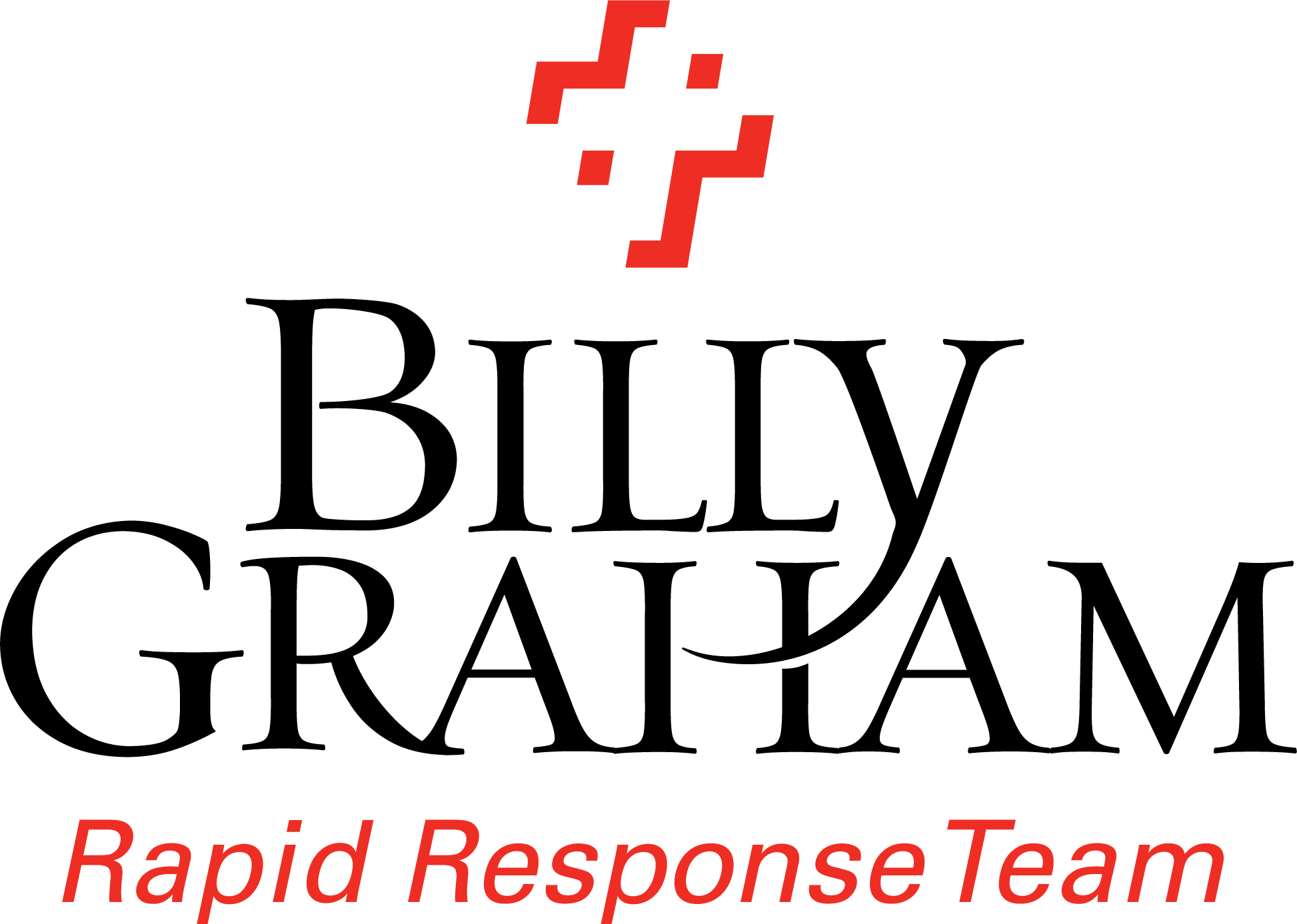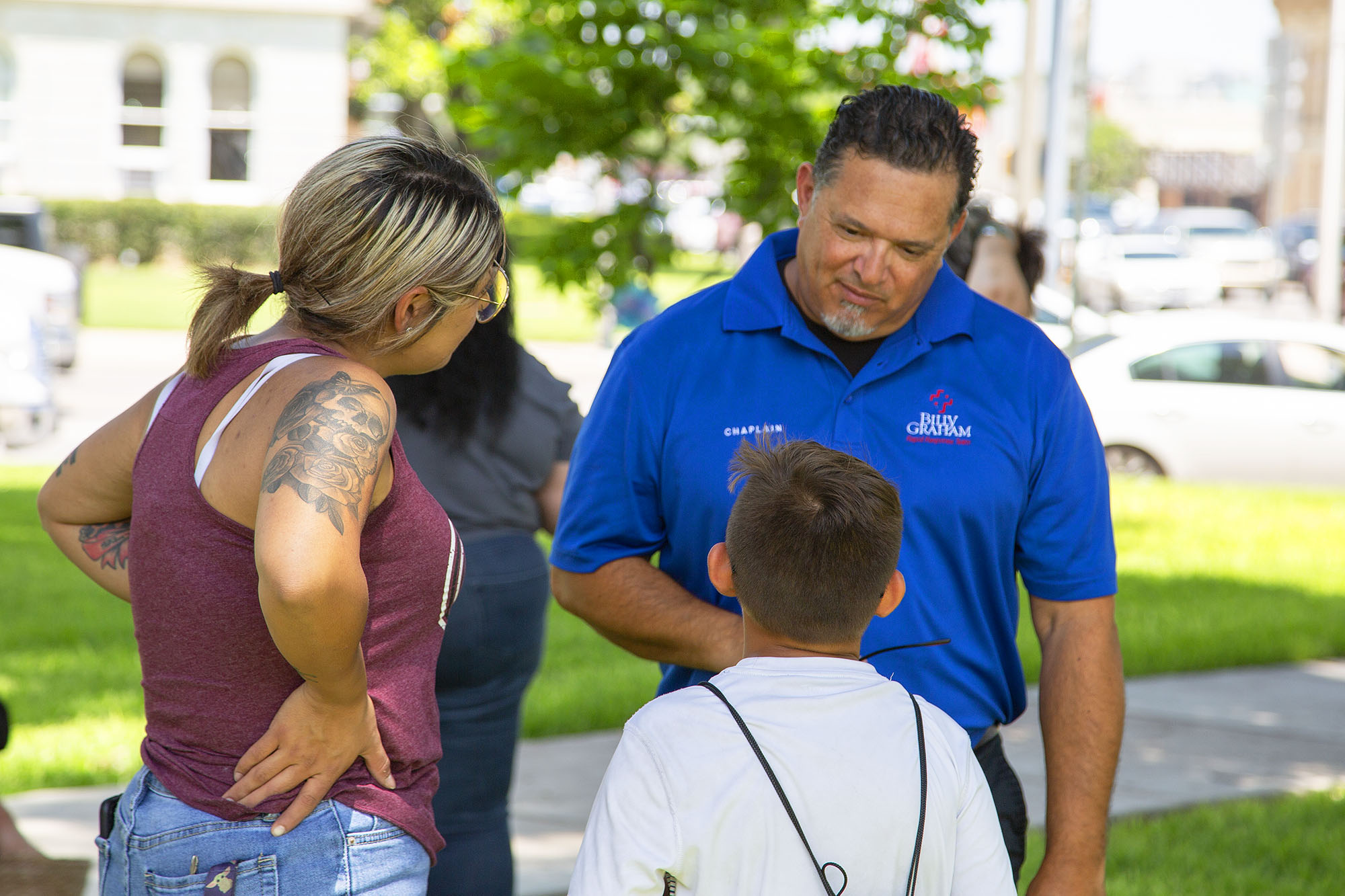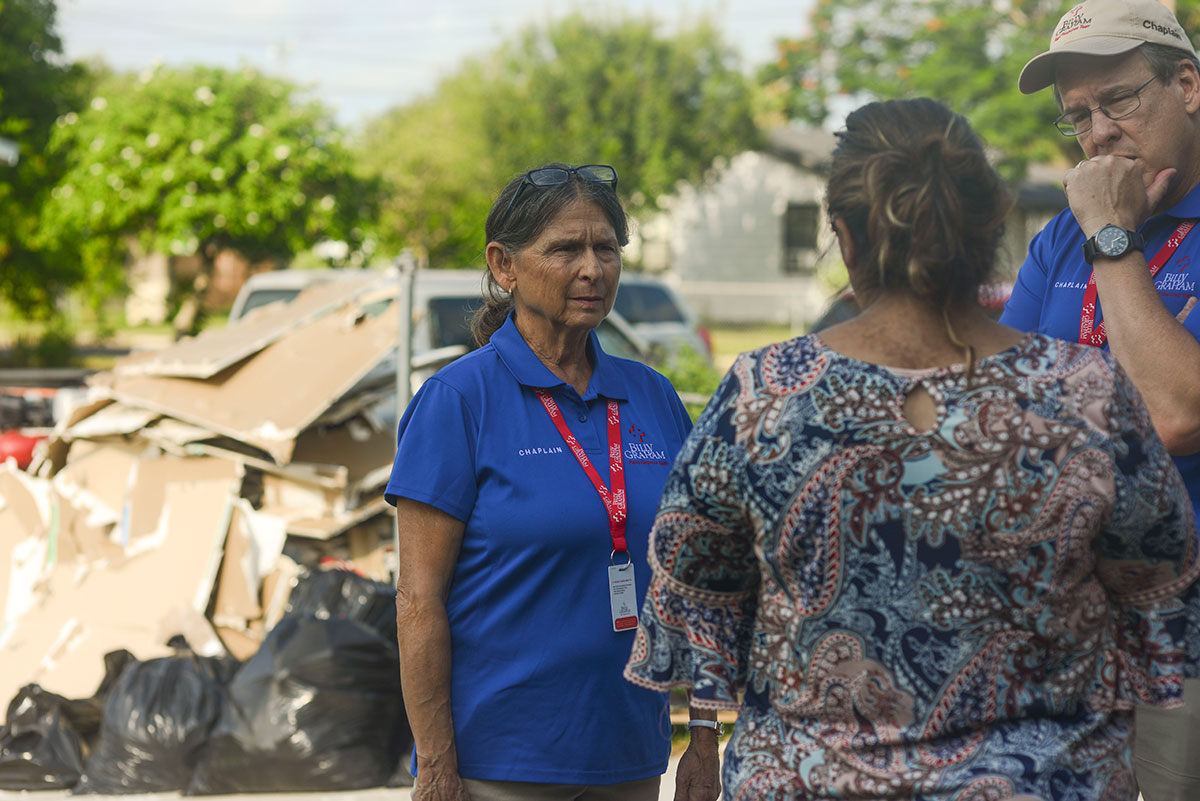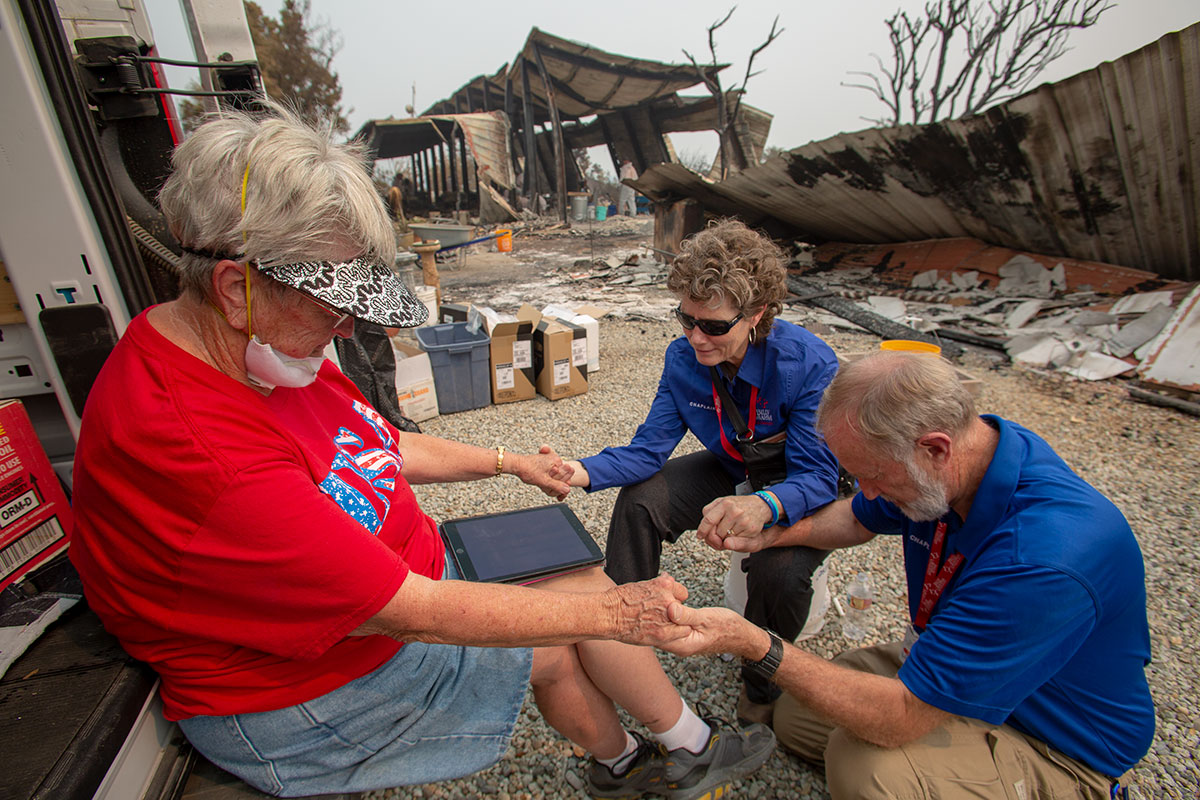To meet the critical need for emotional and spiritual care following disasters, the Billy Graham Rapid Response Team (BG-RRT) currently has chaplains in the United States, the U.S. Territory of Puerto Rico, Australia, Canada and the United Kingdom. These approved, crisis-trained volunteer chaplains are carefully selected to demonstrate the compassion of Jesus Christ, and appropriately share God’s hope through the One who “heals the brokenhearted and binds up their wounds” (Psalm 147:3).
A Chaplain Ministry of Billy Graham Evangelistic Association



